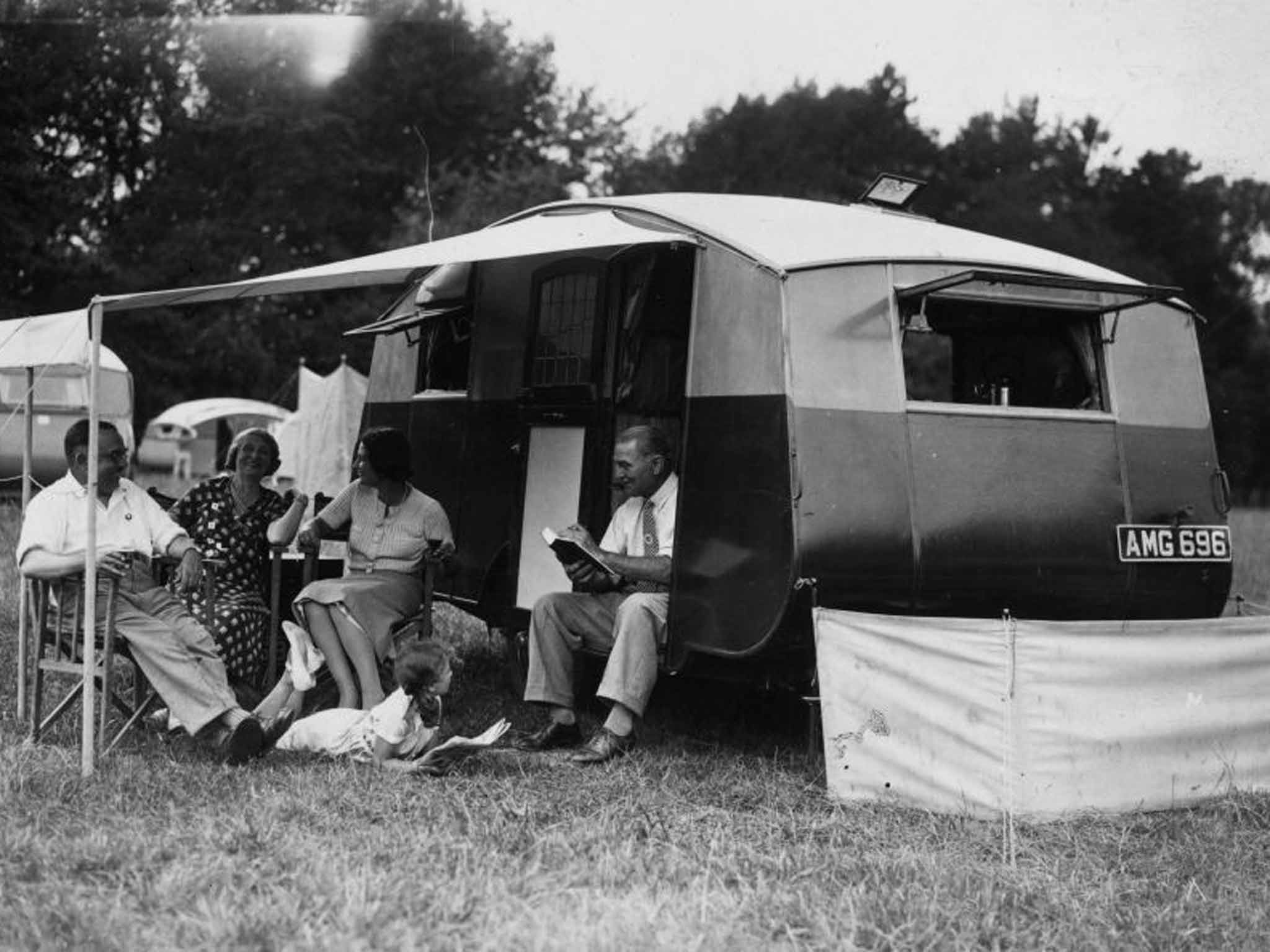How the world of caravanning has moved up a gear in the last 130 years
The Wanderer was the first touring mobile home, writes Rhodri Marsden, who looks at the enduring appeal of caravanning

Quasar. Hurricane. Buccaneer. Firestorm. Pursuit. No, not forgotten characters from 1990s television series Gladiators, but models of caravan.
The stark contrast between the intrepid spirit suggested by those names and the humdrum reality of spending time in a caravan has always made me laugh, but perhaps I should be more respectful. After all, this thing has history.
In 1885, William Gordon Stables, a Scottish author of adventure fiction, fancied an adventure of his own. Having commissioned the Bristol Carriage Company to make the world's first purpose-built leisure touring caravan, he set out on a maiden voyage from Twyford to Inverness, recording his thoughts in a book, The Cruise Of The Land Yacht Wanderer, or Thirteen Hundred Miles in My Caravan. This summer marks the 130th anniversary of The Wanderer's journey.
The Caravan Club, an organisation that boasts Stables as its first president, is currently tweeting highlights from that journey with the hashtag #Wanderer130. If your appetite for 19th-century caravanning is more substantial, you'd do well to delve into the book itself.
"The man who is master of a caravan enjoys that perfect freedom which is denied to the tourist," he writes. "He can go where he likes, stop when he likes, go to bed at the hour which suits him best… In a caravan one has all the privacy of a private residence, with the convenience of being able to wheel it about."
Stables may have been the first person to gad about in a purpose-built caravan, but his summary of its appeal is still relevant today, according to The Caravan Club's Nikki Nichol.
"With caravanning, you don't have to wait for that two week holiday every year," she says. "Every Friday night can be the start of a holiday." And then get snarled up in traffic on the M4?
"Well, I've got sites that are 10 or 15 miles away from my home," says Nichol. "And you feel like you're away from everything."
The Wanderer was a hefty beast, 20ft long (about the same as a Swift Conqueror 570) but significantly taller, at 11ft.
"Loaded-up," wrote Stables in the book, "she will be under two tons. The loading-up includes master, valet, coachman, and a large Newfoundland dog."
That dog, named Hurricane Bob, plays a quiet but significant role, a passive observer to "a dreary evening in Aldbourne" or a group of Durham miners who, Stables explains, "drank and gambled till 11, went outside and fought cruelly". It's a fascinating historical document of road travel in the 19th century, at a time when early motor vehicles were still required to have someone walking several metres ahead of them waving a red flag.
Today, caravanning enthusiasts are understandably eager to emphasise its continued popularity. The National Caravan Council estimate that caravanning contributes £6bn to the British economy, with more than five million nights spent in caravans in the UK.
Meanwhile, The Caravan Club (president: Viscount Coke) represents more than million members, while The Camping And Caravan Club (president: Julia Bradbury, formerly of the BBC's Countryfile) represents half a million.
Its appeal is huge, albeit slightly cyclical, according to Nichol.
"You'll find mums and dads taking children away when they're young. Then when they get to their teens they might stop caravanning, but when they leave home and have kids of their own, they remember those holidays and want to do it for their own children."
While caravanning evidently runs in the family, Nichols notes that it also facilitates other hobbies and interests, such as motorsports, fishing, surfing and cycling.
Quite a change from Stables's day; he lists the contents of his caravan as including a piano stool, "a camp-chair, music-rack, footstool, dressing-case... guitar, a small harmonium, a violin, a navy sword, and a good revolver."
Today, the Wanderer, resplendent in polished mahogany, is on permanent display at the club's headquarters in Broadway, Worcestershire. Quasar, Hurricane, Buccaneer, Firestorm and Pursuit may be on display in your local caravan showroom.
Join our commenting forum
Join thought-provoking conversations, follow other Independent readers and see their replies
0Comments